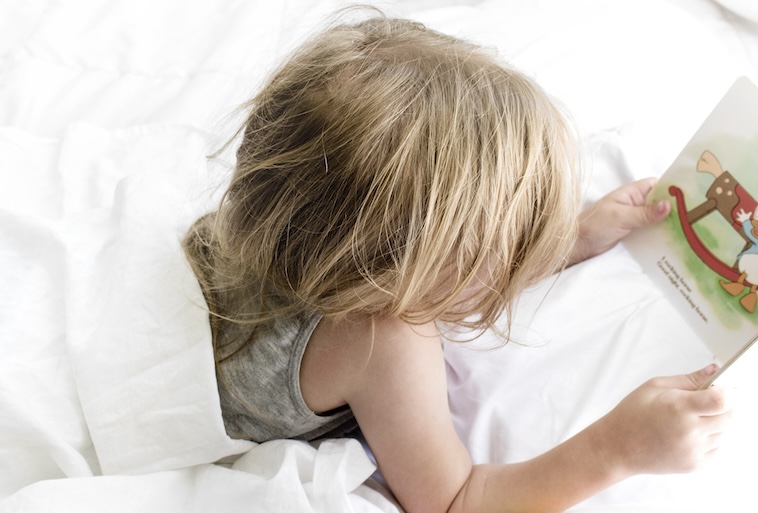Cognitive Behavioural Therapy – A practical guide for mums

[AD] Motherhood can be challenging, between caring for your children, and managing your home, it’s no surprise that feelings of stress, self-doubt, or anxiety can sneak in.
However, there are ways that you can overcome these feelings, and one of these ways is Cognitive Behavioral Therapy (CBT).
CBT is a practical approach that can give mums the tools they need to help them navigate any mental health challenges they may be feeling.
This post will discuss what CBT is, how it can help mums, and how you can start using it.
It’s important to remember that if you don’t feel like yourself for a long period of time, or your symptoms are impacting your daily life, then make sure you speak to your GP or midwife.
Common mental health challenges for mums
Some of the more common mental health challenges that mums face include:
Stress and anxiety
The mental load of being a mum is a lot, from stressful school runs, school schedules, to managing household tasks, stress and anxiety can build up quickly when there’s little time to breathe or recharge, especially when mums feel the pressure to “do it all.”
Mum guilt and low self-esteem
Many mums struggle with mum guilt, the feeling like they’re not doing enough, or falling short in some way.
These feelings can often lead to self-doubt and low self-esteem, so it’s important to remember that being “good enough” is perfectly okay.
Burnout and depression
The constant demands of motherhood can lead to mum burnout, leaving mums emotionally and physically drained.
When mum burnout goes unaddressed, it can turn into depression, making it even harder to find joy in everyday life.
What is CBT and how it can help mums
CBT is a practical form of therapy that focuses on the connection between your thoughts, emotions, and actions.
In a CBT session, a therapist works with you to uncover thought patterns that might be fueling your mental challenges.
The therapist will teach you effective CBT therapy techniques to reshape these thought patterns into healthier, more supportive ones.
These techniques aren’t just tools, they’re life skills that can help you handle stress, find balance, and feel more in control of your life.
Here’s how CBT can help mums to navigate the unique mental health challenges of motherhood.
Developing coping strategies
Therapists will teach you techniques that work in real life, not just in theory.
For example, with behavior activation, a therapist will guide you to take small steps toward activities that spark joy and purpose, journaling is a technique they may introduce to help with this.
These techniques will help you track patterns, and better understand what triggers feelings of stress or calm.
For fears or anxieties, exposure techniques are used to gently help you face and overcome challenges one step at a time. These strategies build confidence and a sense of control in your daily life.
Reframing negative thoughts
Negative thoughts like “I’m failing as a mum” or “I’ll never be a good enough mum” can become a constant mental loop.
Therapists will help you reframe these thoughts into a more balanced, positive perspective, which is called cognitive restructuring.
For example, instead of thinking “I never do anything right,” you might learn to say, “I’m doing the best I can, and that’s enough.” This shift can reduce emotional overwhelm, and increase self-compassion.
How to get started
Taking the first step toward better mental health might feel overwhelming, but it doesn’t have to be. Here’s how you can ease into a CBT journey.
Seek professional guidance
Partnering with a licensed therapist is the best way to explore CBT.
A therapist helps you identify the root of your struggles, and guides you through evidence-based techniques.
With their support, you’ll develop personalised strategies to tackle challenges like stress, guilt, and burnout.
If life is busy, many professionals offer flexible options like online sessions, to fit your schedule.
Start with small, actionable steps at home
You don’t need to overhaul your life overnight to see results.
Begin by trying simple techniques like journaling, writing down your thoughts can help you identify patterns and notice triggers.
For stressful days, relaxation exercises like progressive muscle relaxation, can ease tension in just a few minutes.
Leverage available resources
Plenty of tools can support you in your CBT journey.
Apps, books, and online videos provide beginner friendly guidance to help you understand and apply CBT principles.
While these resources are great starting points, it’s important to remember they’re most effective when paired with professional therapy.
CBT for mums – a recap
Motherhood can be challenging, but it doesn’t have to feel like an uphill battle every day.
CBT offers practical tools to help you tackle stress, reshape negative thoughts, and find balance in your life.
Taking that first step, whether it’s reaching out to a professional, or trying a simple exercise at home, can make all the difference to your daily life.
How do you cope with the demands of motherhood?






